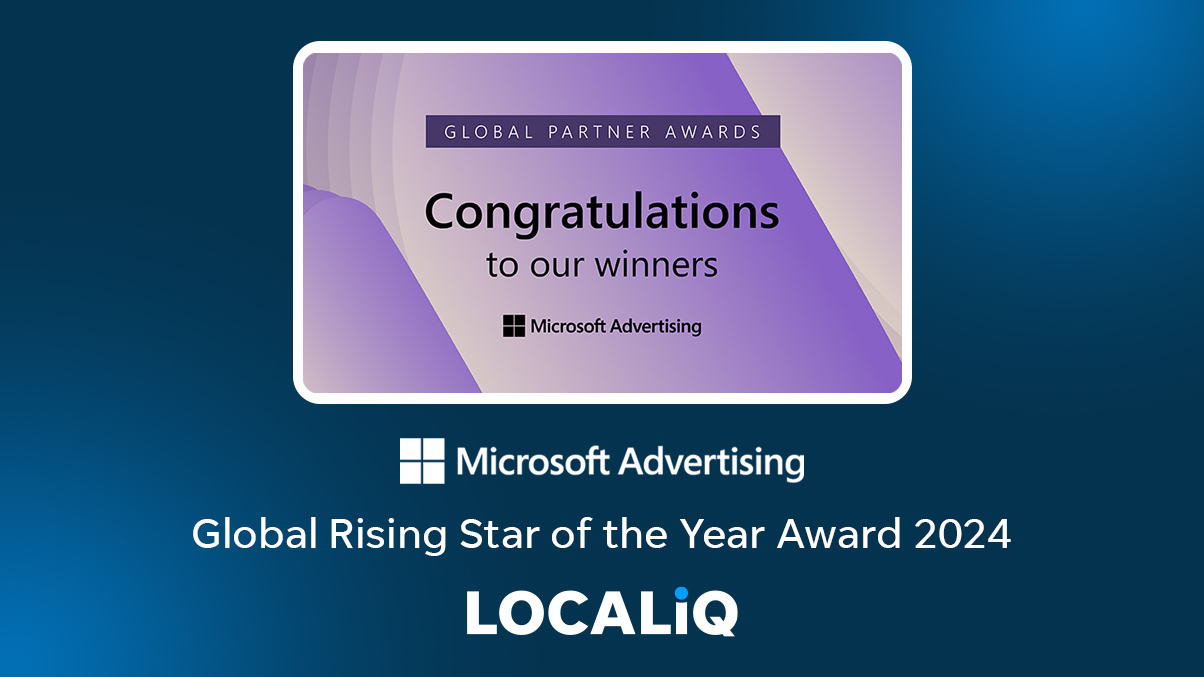With over 150 higher education institutes across the UK, attracting prospective students to your university can be extremely competitive. By having a strong, well-planned digital marketing strategy, you can ensure that you stand out amongst your competitors.
Students want to know that your university is the perfect choice for them; you need to be able to demonstrate that your university provides value for money, world class standards of education, and is an environment that fosters academic development, creativity, and diversity. You need to be visible in the places where your prospective students turn for resources and information when researching universities. By using SEO optimised content, advertising, social media, and other digital marketing techniques, you can make sure that your institute is ready to welcome them. Follow our digital marketing guide for attracting prospective students to boost your admissions this semester intake.
State of Digital Marketing Report 2024
Exclusive insights and data from the marketing strategies of over 500+ UK business
How to use digital marketing to improve university admissions
Attracting students to your university can be difficult. Whilst higher education marketing used to focus mostly on bringing in students for tours and open days through print advertising, in today’s digital age, having a welcoming, encouraging online presence is more important than ever. Digital marketing can help you to showcase your amazing, innovative courses, the hotspots of your university’s city, and how welcoming and dynamic your student body is. Here are some ideas to kickstart your digital marketing strategy:
Virtual tours/Open days
Keep accessibility in mind when promoting your university; there are several reasons why a prospective student may not be able to visit your university in person before applying, so make sure to welcome them virtually. A good online presence will help you to stay competitive and help you to attract far away and international students.
A virtual tour of your campus, facilities, student’s union, halls of residence, and surrounding city is an excellent way to create a sense of familiarity with your audience. Prospective students want to know that your university is right for them; by being able to explore your facility and what you have to offer via a virtual tour, they may feel able to visualise themselves as part of your university’s community.
Make sure to show off the best of your university. For example, if you’ve recently opened a new wing in your library, or recently renovated your sports or leisure centre, make this a focal point of your tour. University life is about more than studying, and these details may be a vital factor in a prospective student’s decision making.
If your university is based in a bustling city, consider creating virtual sightseeing tours; show off the best places to study, walk, eat, drink, and socialise. Most students will be spending between 3-4 years at university, meaning that location can be a huge influence for some.
Webinars
Webinars can help you to connect with potential students from all over the country. With most students choosing to move away to a brand-new city for university, there’s a chance that they may not be able to come and visit your campus or come to any in person taster sessions. A webinar can help them to become acquainted with your university and get a feel for the campus culture. Webinars are a way for prospective students to interact with faculty and fellow students whilst finding out more about their future university; fostering a connection between prospective students and your university is one of the best ways to build trust. Here are some examples of webinars that you could host:
- Q&A
A Q&A is a fantastic way to settle the minds of nervous students and parents. Many students move away from home for the first time for university, which can be a daunting prospect. A Q&A is an opportunity to create a direct line of communication between yourself and students and parents to answer any questions that they may have about your university, the campus, or the application process.
- Guest speaker seminars
Having a member of your faculty, successful alumni, or a subject-related thought leader host guest lectures can showcase the best talent in your community and inspire prospective students to consider what they might be able to achieve with your help.
- How to Apply to University
For many prospective students, the application process can be a source of stress. Applications can be long and demanding; candidates are expected to craft a personal statement that communicates their past achievements and future plans, in the hopes of achieving a space at university. You may have prospective students who have been out of education for a long time or have taken non-traditional routes to higher education, and they may need assistance with the university application process.Hosting a webinar to talk candidates through the application process, entry requirements, and deadlines may put prospective students at ease.
- Course related
Choosing what course to study at university can be overwhelming; there are thousands of course options available to those pursuing higher education, and the right choice isn’t always obvious. For those who are finding course selection challenging, a webinar that walks them through the daily tasks, expectations, and advantages of a particular course could make the decision easier.
- Society taster sessions
Give your university societies the opportunity to showcase their community and activities online via webinar. Lots of prospective students consider joining a society when they begin university, and this is a great way for them to learn how and what they can get involved with at your campus.
Blogging
Content creation is one of the best ways to connect with your target audience. Content such as blog posts help to improve your visibility on search engines, drive traffic to your website, and builds trust and communication between you and your audience. Consider connecting with prospective students by creating helpful and relatable blogs and resources for them to review. You could even enlist some of your students or your university magazine to help write them, to give the blogs a more authentic feel. Here are some suggestions:
University Experience
- 10 Essentials to Take to University
- Tips for Your First Week at University
- How to Make the Most Out of University Facilities
- Find Your Perfect Society
- 10 Best Things About Studying at Our University
- What to Do When You Arrive at University
- Interview with A Student
- Best Study Spaces in _____
- 5 Things to Do This Month in ______
- How to Make the Most of University Facilities
Alumni testimonials
Testimonials are an important social proof tool that you can utilise to gain trust with your target audience. Alumni advocacy for your university could help to sway prospective students; by seeing what other students have to say about their time at your facility and what they have achieved could encourage them to apply.
Get some of your recent graduates to create video testimonials that you can share on your website and social media. Send a survey to your past cohorts to find out more about their experience at your university and their successes post-graduation; you could use these to create easily digestible and eye-catching infographics. Peer to peer communication can help prospective students to feel connected to your university.
Social media
Did you know that 96% of students use social media? To market to prospective students, you need to ensure that you’re visible on the platforms that they are accessing. Social media is one of the best tools for digital marketing, and with a little planning and understanding of social media algorithms and your target audience, you could reap huge benefits from curating a detailed social media marketing strategy.
Research has shown that 58% of aspiring students use social media to research educational institutes, so you need to make sure that your university is utilising social media platforms to their full potential. Regularly posting to social media channels will help you to create an active digital community where alumni, faculty, and prospective students can collaborate and partake in online discussions. By cultivating a great active community on social media, you can show off what your university has to offer. You can use a blend of content, rich media, user-generated content, and reshared posts to discuss your university, your environment, news, and achievements in a way that could attract potential pupils.
How can I promote my university on social media?
Most students begin university as young adults (18-25), so you want to be visible where your target audience is most active. 82% of young adults use YouTube, 80% use Facebook, and 76% use Instagram. These platforms are a good jumping off point for your social media strategy.
- YouTube
Videos are one of the most engaging forms of content. There are many kinds of videos that you could make: lectures, interviews, testimonials, or on-campus tours. Video content is a convenient and easily digestible way for prospective students to see your university, even if they can’t make it to an open day. Utilise your current students and faculty; by including real people in content, your university prospective students may feel more connected.
- Instagram
Instagram can be used to show prospective students what life is like at your university. As Instagram is primarily a photo-sharing app, you could post photographs of your university campus and any amenities such as the students union or leisure facilities, pictures that emphasise the city your university is based in, photos from graduations or student event days, and many others.Make sure to utilise all the features of Instagram:
- Use stories to host student or society takeovers
- Use highlights to collate useful information for prospective students all in one accessible place. Highlighting stories will make sure they stay on your profile
- Use reels to share tips and tricks, tours of your campus, or interviews with students
- Use Instagram guides to create resources for your audience, such as tutorials for applying to university, FAQs, or tips for more efficient studying
- Create a memorable hashtag for your university and encourage your students and faculty to use it when making university-related posts. User-generated content is a useful form of social proof; when prospective students search for your hashtag, they will be able to determine how others view and post about your university. They will be kept in the loop with what is happening at your university and what others have to say about it
- Facebook
Facebook is a great place to nurture relationships with current and prospective students. Use your Facebook page to give your university a human voice; focus on engaging with your audience through statuses and comments.Your Facebook page is one of the best places to share any news or updates, such as application deadline days or university research news. It’s likely that your largest social media audience will be on Facebook, so make sure that this is where you create and share events such as open days or taster sessions.
Whichever social media platforms you decide to promote your university on, make sure that you stick to the basics of social media marketing:
- Create engaging, useful content
- Stick to a consistent posting schedule
- Find your unique, distinct voice
- Stick to branding guidelines
- Stay up to date with social media algorithm changes
- Interact frequently with your audience
- Make sure your social media profiles are cohesive across all platforms
- Regularly perform social media audits to monitor progress
- Set SMART goals to encourage growth and stay focused on improving your strategy
Email marketing
Email marketing one of the cheapest ways to reach a large audience and receive a great ROI. Developing a solid email marketing plan will allow you to engage and interact with your target audience in a personalised manner. Whilst social media is a reliable way to interact with prospective students, email marketing is still the preferred mode of higher education marketing to prospective students . A great email marketing campaign could help you to attract a wealth of new admissions.
How to market to students via email
1. The first step you should take in your email marketing campaign is to find out more about your target audience. Figure out their needs, and then guide them to the most relevant information on your website.
If a prospective student has submitted a form on your website to learn more about your institution, use this is as an opportunity to send them important information about your university, such as enrolment deadlines, taster session, or a prospectus. Whilst most prospective students will have a broad idea of where they would like to study, or what subjects they are interested in, there are still a lot of external factors that will go into their decision making. Use your email marketing campaigns to target potential students interested in universities within your region, or that may find your courses of interest.
2. Segment your email list by demographic information such as: subject, region, or extracurricular interests. List segmentation will make sure that you’re only sending relevant information to each receiver.
3. Make sure to personalise your emails. This is a great way to make prospective students feel as though they are a part of your community, and it may make them feel more inclined to open your email. Personalising an email’s subject line can improve your click-through rate by at least 14%.
4. The body of your email should contain relevant, interesting content. Once you’ve got receivers to open your email, you want to capture their attention by packing the body of the email full of information that will be useful to them. Your email should be easy to read, digestible, and should contain a convincing call-to-action. Ensure that your email design is optimised for mobile, desktop, and tablet, so that anyone can access your email.
Your emails should include:
- General information about your university
- Guidelines on how to apply and the admissions process
- Information about programmes and societies
- Information that’s pertinent to each of the lifecycle stages. Segment your email list so you can send personalised, relevant content to prospective students from the beginning of their student journey, through their application, and to enrolment
- A CTA that will guide your readers to take a specific action, such as scheduling a visit to your campus, submitting their application, or competing enrolment
5. Make sure that your emails are in line with your branding guidelines. Your email should contain your university logo, and any images included should be relevant to your facility. Ensure that your communications are written in the same tone; use an enthusiastic and genial approach to develop a connection with your audience. Being consistent in your email marketing approach will make your university and your communications more memorable.
Once you’ve sent out your email communications, make sure to review the analytics to check how well your email has been received. Pay attention to the click through rate, and how many people clicked on your CTA. Tracking your email metrics will highlight areas for improvement and benefit your future email marketing campaigns.
Statistics
Integrate statistics about your alumni and your university performance into your communications, social media, and website. Provide prospective students with data that proves the worth of attending your institute; tell them what percent of graduates have managed to secure a graduate position, how many students achieved top marks, or include overall student satisfaction scores. By proving you have high graduation rates and happy students, you are also providing proof that your faculty and subject departments are devoted to ensuring students are taught to the highest standard. Make sure to update your statistics annually.
Paid traffic
Whilst it’s important to create organic social media posts, paid traffic can be helpful in boosting your reach.
Even a small advertisement can positively impact the number of admissions you receive; whether you want to advertise a university-run event, a particular programme or society, or want to increase your overall visibility, paid advertising can help you to achieve your goals.
Define your prospective student persona; you need to know who you are marketing to. Once you have figured this out, decide on some KPIs that can help you to guide your campaign and achieve your results. Setting SMART goals will help you to track your campaign.
Consider whether social media or search engine advertisement may work better for your personas; search engine ads are great for appealing to a wide demographic through keyword searching, and social media ads can help you to appeal to a niche persona. When you know who you want to reach, and what you want to tell them, decide on which platforms you want to run your ad campaign. Select platforms that are used by your personas to maximise your ROI.
Make sure to analyse your advertisement’s reports; this will inform you about the impact of your ad, how much you have spent, and who is clicking on your adverts.
The most important part of marketing to prospective students is to make sure that your campaign is focused on what you can provide for them. Prospective students want to know how attending your university will provide them with an outstanding education, prosperous career opportunities, and the chance to get involved with an exciting range of extracurricular activities. They want to know why they should choose your university over your competitors, and it’s your responsibility to appeal to them through an up to date, detailed digital marketing strategy to make sure that you’re receiving a high number of admissions each academic year. Build a real connection with your prospective students and gain their trust through an authentic, inclusive digital marketing campaign.
State of Digital Marketing Report 2024
Exclusive insights and data from the marketing strategies of over 500+ UK business





